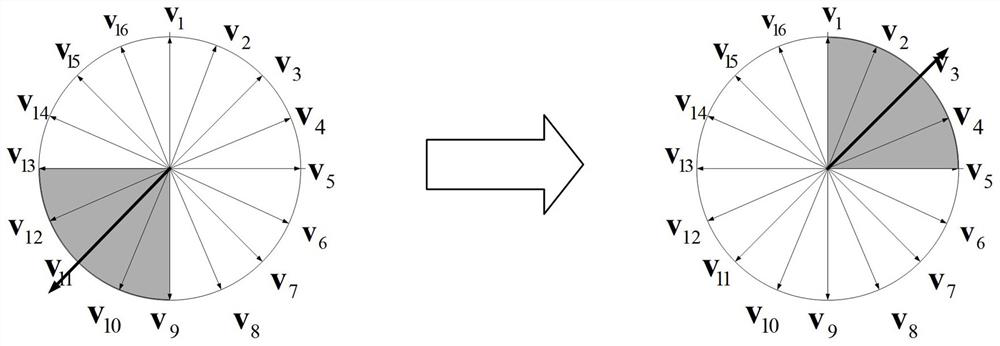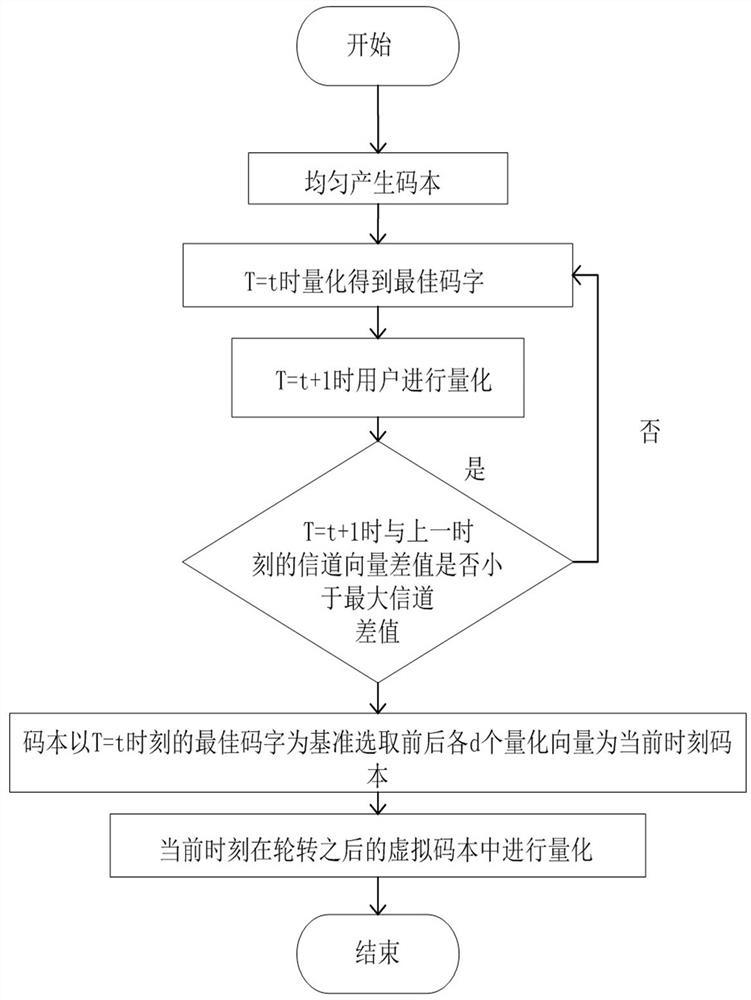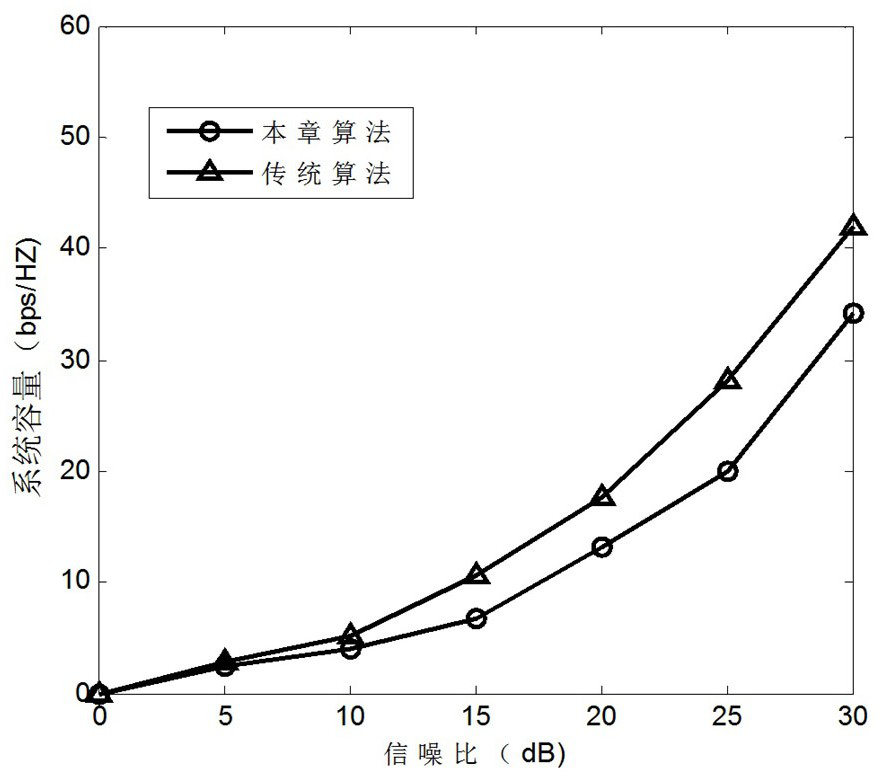A Finite Feedback Quantization Method Based on Codebook Rotation
A quantitative method and limited technology, applied in diversity/multi-antenna systems, space transmit diversity, electrical components, etc., can solve problems such as providing CSI
- Summary
- Abstract
- Description
- Claims
- Application Information
AI Technical Summary
Problems solved by technology
Method used
Image
Examples
Embodiment 1
[0041] Consider a downlink system in a massive MIMO system, the system is a single base station model, the number of antennas at the base station is M (in practice, the number of antennas is usually greater than 100), and the number of randomly distributed users in the cell is K, then the i-th user ( i=1,2,...,K) Received signal y i , as shown in formula (1):
[0042]
[0043] where h i is the channel vector of the i-th user, assuming that the channel is block fading and the fading between blocks is independent, the channel obeys Rayleigh fading and is a flat channel; g i , g j are the precoding vectors of the i-th user and the j-th user, respectively, and where H is the conjugate transpose of the channel, |||| F Indicates the norm of the vector; x i is the sending information vector to the i-th user; n i It is an additive white Gaussian noise with a mean of 0 and a variance of 1.
[0044] Each user end converts the channel information into a quantized codebook of B...
Embodiment 2
[0074] Feedback bit number and computational complexity analysis.
[0075] When user K i When the difference between the channel vector at T=t+1 and the channel vector at the previous moment is less than the maximum channel difference, the first 2d codewords after its rotation are selected as the virtual codebook, and the number of codewords in the codebook is determined by the number of codewords in the original codebook of 2 B reduced to the virtual codebook in:
[0076] B t+1 = log 2 (2d) (8)
[0077] Therefore, compared with the traditional feedback method, the number of feedback bits ΔB is reduced, as shown in formula (9):
[0078] ΔB=B-log 2 (2d) (9)
[0079] In a massive MIMO system, K users perform limited feedback at the same time at the same time, and each user can effectively execute the algorithm at the current time to reduce the number of feedback bits, but there are also cases where the current time does not meet the codebook rotation conditions and cann...
PUM
 Login to View More
Login to View More Abstract
Description
Claims
Application Information
 Login to View More
Login to View More - Generate Ideas
- Intellectual Property
- Life Sciences
- Materials
- Tech Scout
- Unparalleled Data Quality
- Higher Quality Content
- 60% Fewer Hallucinations
Browse by: Latest US Patents, China's latest patents, Technical Efficacy Thesaurus, Application Domain, Technology Topic, Popular Technical Reports.
© 2025 PatSnap. All rights reserved.Legal|Privacy policy|Modern Slavery Act Transparency Statement|Sitemap|About US| Contact US: help@patsnap.com



